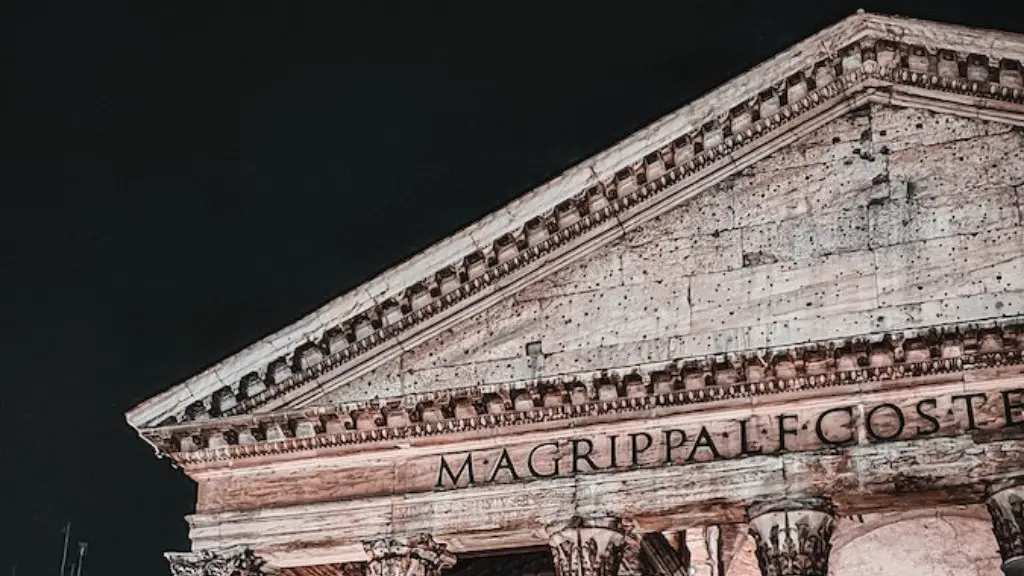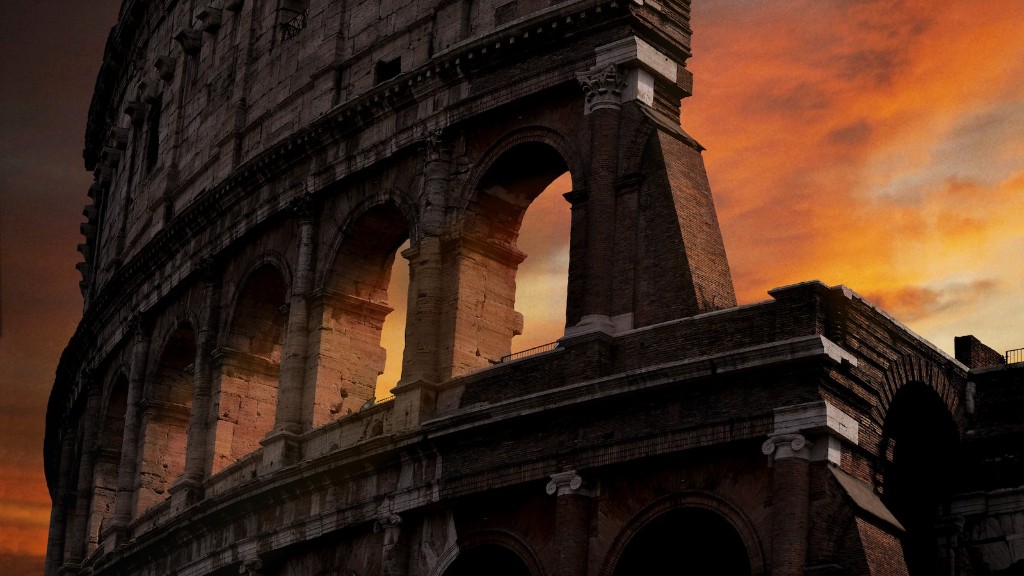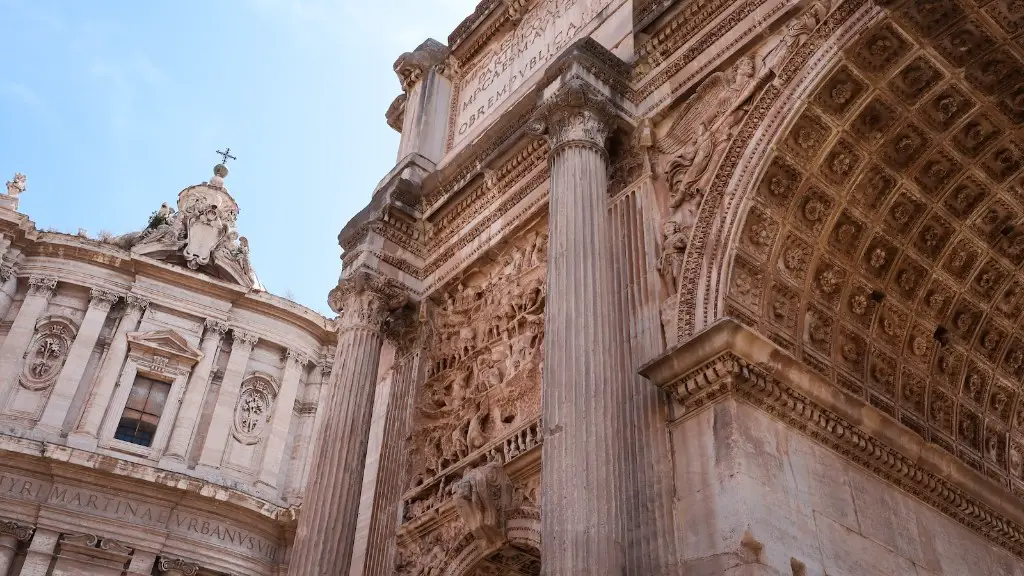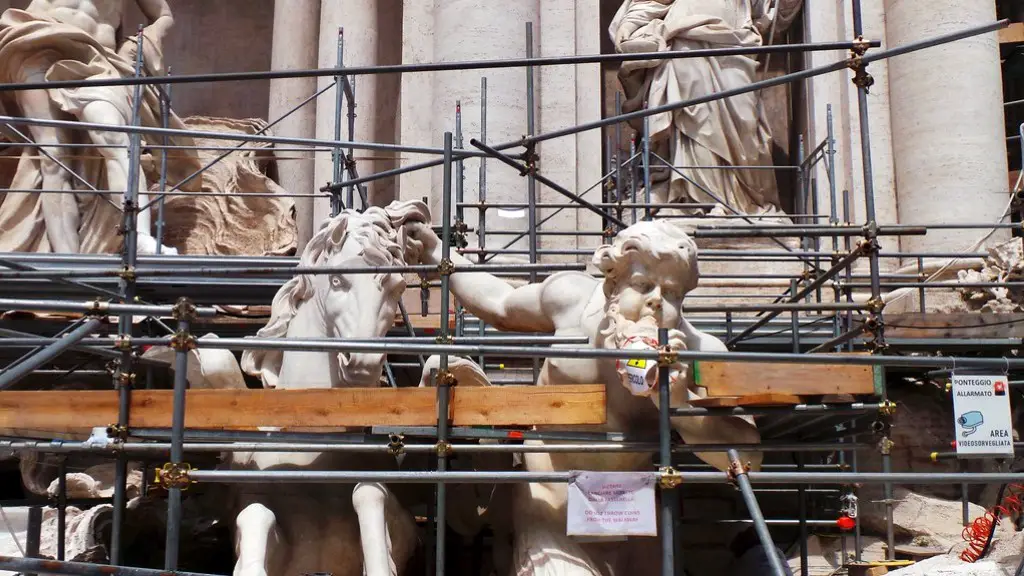Ancient Rome had a fascinating political system that was composed of various elements, some of which were democratic and some authoritarian.
The Roman Republic was established in 509 BCE and lasted until the end of the Roman Empire in 476 CE. During this period, the Senate was the governing body of Rome and it was comprised of aristocrats from prominent Roman families. The Senate had the power to pass laws and make decisions on the behalf of the people. It was also responsible for setting up the judiciary, appointing leaders, and managing external relations.
Alongside the Senate, there was the position of consul, who held executive power over the state. Consuls were annually elected by the people and served a two-year term. They had authority to make important decisions on military and domestic matters. There were two consuls at any given time and they both had to agree on all decisions.
In addition to the Senate and the consuls, there were certain legislatives assemblies and courts. The Centuriate Assembly was responsible for legislative affairs and was comprised of wealthy citizens. The Tribal Assembly was the main judicial power and it consisted of the entire Roman citizens. It was also responsible for electing leaders.
Despite its democratic elements, the Roman Republic had a distinctly authoritarian structure. The Senate was dominated by a few powerful families and the consuls had overwhelming power. The Roman state was also heavily influenced by religious perspectives and the historic Pontifex Maximus, the highest religious authority in Rome, had immense power and influence.
The Roman Republic ultimately gave way to the Roman Empire under Augustus, in 27 BCE. While Augustus was nominally a republic, power was concentrated in his hands. His successors, known as the Julio-Claudian dynasty, continued his rule and furthered the concentration of power. This period, often known as the “Principate,” lasted until the year 180 CE.
The Roman Empire evolved into the “Dominate” in 180 CE. The Dominate saw more centralization of power, as emperors increasingly sought to assert control over all aspects of Roman life. This period of Roman history, often referred to as the “Imperial period,” lasted until the end of the empire in 476 CE.
The role of Roman Law in shaping the politics
Roman law was an integral part of the politics and culture of Ancient Rome. As the empire flourished and expanded, Roman law was adopted by much of the known world, providing the basis for many modern legal systems. Roman law was developed largely by jurists, who were highly respected legal experts appointed by the Senate. They created a system of codified laws, which served as the basis for all subsequent legal decisions. While Roman law and legal proceedings were largely based on tradition and custom, it was an incredibly sophisticated and comprehensive system that dealt with civil and criminal matters.
The Roman legal system had an undeniable influence on both the internal and external politics of the empire. It provided a framework for resolving disputes and settling conflicts. It also served as a tool to justify the authority of the emperors and the Senate, and to provide legal backing to their decisions. Moreover, the sheer number of legal texts that were created and circulated meant that Roman law was widely acknowledged as a valid and authoritative source.
The influence of religion on politics
Religion played a major part in the politics of Ancient Rome. As the empire expanded, more and more religions were tolerated and patronized, creating a culture of religious pluralism. The most prominent of the Roman religions was Christianity, which was embraced by the emperor Constantine in 313 CE. Under Constantine, Christianity became the official religion of the Roman Empire, though other religions were still allowed to exist.
Religion had a great influence on the political system of Ancient Rome. It was used as a tool to gain power and legitimacy, as well as to unify people. The Roman state actively intervened in religious matters to ensure order and harmony. Furthermore, religion was a major source of moral guidance and set out the duties and responsibilities of citizens.
The impact of Ancient Rome on modern politics
The politics of Ancient Rome still have a powerful influence on modern politics. The system of government that was developed in Rome is still the basis of many modern political systems, and many of the political institutions and principles that the Romans put in place are still the same today. Furthermore, the Roman legal system and its codified laws have been adopted by many countries and have served as the foundation for many of today’s legal systems.
The political ideas of ancient Rome have also had a direct effect on the development of modern political thought. Their system of government and state structures, as well as the rhetoric of their leaders, have been an inspiration for many of today’s political ideologies and movements. In addition, the Roman concept of citizenship and its complicated rights and duties, as well as its emphasis on public service, have been crucial in shaping modern political discourse.
The importance of political education in Ancient Rome
Education was an important part of the political system of Ancient Rome. Schools were established to teach young people the political, military, and moral values of Rome. Children were taught the history, laws, and language of Rome, and they were expected to become informed and involved citizens. As adults, they had to have knowledge of the laws and customs of Rome, as well as of the political and military matters that affected the state.
Political education was highly valued in Ancient Rome and was seen as essential for the proper functioning of the state. Citizens were expected to be informed and politically-engaged, and to participate in public life and decision-making. Political education was therefore seen as a crucial tool for producing competent leaders and informed citizens.
The legacy of Ancient Rome on politics
The politics of Ancient Rome have left an indelible mark on the world and its influence can still be seen today. Many of the institutions and ideas of Ancient Rome are still in place today, demonstrating the enduring power of these ancient political systems and structures. Furthermore, the political thought of Rome has had a lasting impact on modern political discourse and ideologies, and their system of government and state structure are still used as a model for modern democracies.
The legacy of Ancient Rome’s political system is not just seen in its immediate influence, but also in its continuing legacy on modern politics. As a result of its influence, many people are still deeply familiar with its political traditions, laws, and customs. Furthermore, the political thought and philosophy of Ancient Rome is still highly influential, and its importance for understanding the politics of the modern world cannot be overstated.




